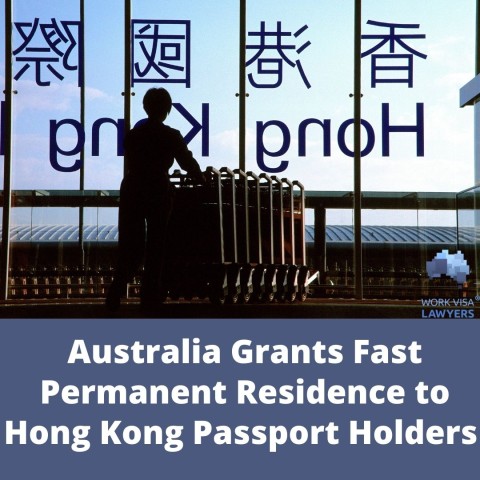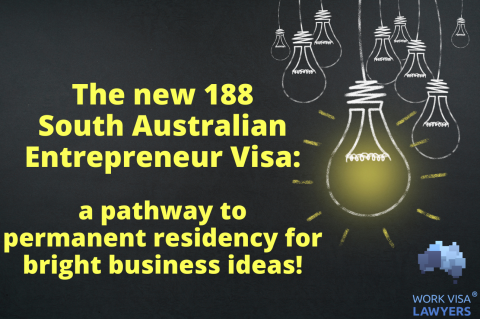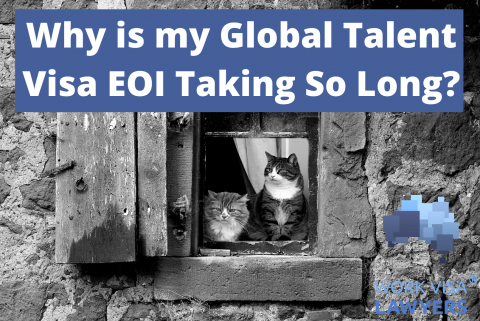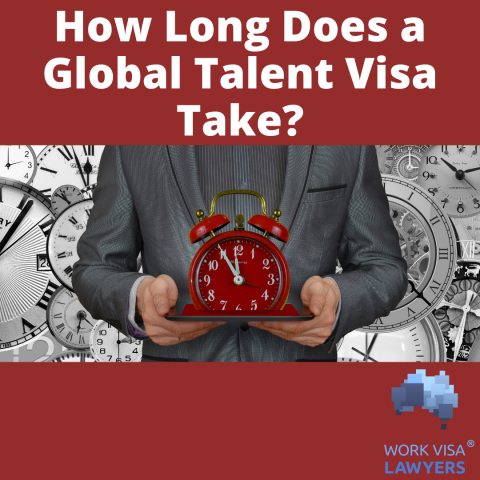Why may Jobs and Skills Summit 2022 outcomes worsen Australia’s immigration systems and increase skills shortages?
*This article is written based on Immigration Lawyers’ view and suggestion on the current Migration plannings by the new Federal Government”
One of the major outcomes from the Jobs and Skills Summit 2022 is that the number of Australian Permanent Residency visas will be increased to 195,000 (an increase of 30,000), with additional funding provided to get through a backlog of visa applications.
As further discussed in this article, whilst not unwelcome these changes nevertheless fall acutely short in terms of actually addressing core problems.
The current Australian immigration system is not fit for purpose – the Australian Government needs to reform and modernise immigration policy.
This article will consider:
- What are the skills shortages?
- Why the Skills Summit outcomes will not actually fix skills shortages?
- How can skills shortages be addressed through immigration policy reform?
If you want to know the likely outcome of the Skills Summit migration policy, then skip to the end of this article.
Table of Contents — Skills Shortages in Australia
Seven Policy reforms needed to address skills shortages
1. Need to add more lower skilled occupations to the skilled lists
2. Skills assessment requirements are out of touch with industry
3. Professional registration processes are too slow and cannot keep up with demand
4. Simplify and reduce costs with employer-sponsored migration
5. Integrity measures and protections against exploitation, including a new visa for vulnerable persons
6. Prohibitive effect of ‘Genuine Temporary Entrant’ requirement for Student visas
7. Regional Migration incentives for all skilled, business and employer visas
The Grattan Institute using migration to generate tax income will make skills shortages worse for businesses
Skills shortages in Australia - What does it really mean?
In considering how Australia’s migration program can be shaped to address skills shortages, the starting point is to consider whether the right question is asked about ‘skills’ shortages. Is this phrase used in honest and realistic terms?
The term ‘skills shortages’ can often be bandied about in the context of higher-skilled positions, for instance, engineers and doctors. Likewise, Australia’s current migration program is heavily skewed towards occupations classified at a higher skill level. The rationale is presumably that those highly skilled migrants fill complex/professional roles, and are more desirable and in demand.
Yet many of the skills shortages in Australia are actually for lower-skilled and lower-paid jobs. The shortages are especially critical for those occupations in regional locations – areas that are outside of the bigger metropolitan cities in Australia.
Is the existing migration program equipped to resolve skills shortages?
Unfortunately, no, not according to the data.
Based on the Skills Priority List, job vacancies data and projected employment growth, the Sydney Morning Herald recently published a forecast of the top in-demand occupations[1]:
- Registered Nurses
- Software and Applications Programmers
- Aged and Disabled Carers
- Construction Managers
- Child Carers
- Motor Mechanics
- Retail Managers
- Chefs
- ICT Business and Systems Analysts
- Metal Fitters and Machinists
Indeed, this list demonstrates that Australia’s skills needs are nuanced. We urgently need a mix of skilled workers to fill higher-skilled and lower-skilled occupations.
Take for example the aged care sector, which has multi-layered workforce needs. Registered nurses must be supported by aged and disability carers as well as personal care assistants. Together they play a vital role in the day-to-day care of some of the most vulnerable members in our community.
Seven Policy reforms needed to address skills shortages
1. Need more lower-skilled occupations to the Australia Skilled Occupation Lists
One of the central problems with the current Australian migration system is the restrictive skilled occupation list, which is too focused on highly educated, tertiary-qualified occupations. There is a propensity to overlook the ‘lower level’ occupations when in fact, these are often the jobs that most need to be filled. Skilled lists for visas need to be amended to add occupations that have the biggest skills shortages, including Horticultural Workers, Aged and Disability Carers, and Child Care Workers.
The irony is that government ministers have sounded the alarm about dire aged care shortages, calling for quicker visa processing and more skilled or work visas for aged and childcare workers.
For those with firsthand knowledge of the system, this rhetoric only highlights the shocking and ongoing failures of the Australian migration program. Skills shortages in the aged care and agricultural industries are not new – these are problems that Australia has grappled with for decades and have significantly worsened during Covid-19.
Despite impassioned pleas from these desperately understaffed industries, aged carers and childcare workers are still nowhere to be found on Australia’s skilled occupation list. What good will faster visa processing do when aged carers cannot apply for at least an Australian working visa in the first place?
These highly desirable workers are excluded from the mainstream skilled migration program. Since standard visas are not open to them, the only alternative for employer sponsorship visas would be sought through a Labour Agreement. This is a complicated, often costly and overly bureaucratic process – it can serve as more of a deterrent than a viable alternative. In the absence of other tangible options, Australia is likely losing many aged and childcare workers to forward-thinking countries that have readily accessible migration pathways.
There needs to be a broad sweeping shift within the Australian migration program to recognise the value of ‘lower-skilled’ occupations.
“Now more than ever they should be brought to the forefront instead of dismissed as outliers.”
Reform to incorporate crucial occupations such as child and aged carers into the mainstream program, creating clear pathways for them to keep working in Australia, would bring immense relief Australia wide.

The Australian Government must commit to policy reforms, rather than placing these issues in the ‘too hard’ basket and walking away. Shortages in the aged care and agricultural sectors are not new problems in Australia. This is a systemic conundrum that requires actual policies to address. Regrettably, the Australian Skills Summit 2022 largely avoided the difficult area of lower skilled and low-paid jobs that cannot be filled. This includes carer jobs, agricultural labor and a range of regional low-skilled jobs. These are important jobs that need to be filled - land must be cultivated and crops must be harvested. Farm workers and aged carers work tirelessly to feed and care for the nation.
On the critical need to prioritise visa pathways for lower skilled workers, Fiona Simson, President of the National Farmers’ Federation had this to say:
“While much of the discussion at the Jobs Summit centred on migration for highly skilled workers – which is undoubtedly a challenge for agriculture – we are still left wondering how we will plug the yawning gap in lower skilled workers.
“We know the PALM isn’t the answer in isolation. We know domestic workers aren’t here in the numbers we need.
“We need appropriate visa pathways to bring in workers from around the world, and to ensure they’re having a positive experience in regional Australia.
“It’s as though people think if they just ignore this problem for long enough, it will just go away. History tells us it is only getting worse.”
“We know that we’re short at least 172,000 workers across our food supply chain. We’re seeing this manifest in higher prices and supply disruptions on supermarket shelves.
“This isn’t just a farmer problem anymore. It’s a burning cost of living and food security issue that needs urgent attention”.[2]
Ms Simson astutely draws attention to the fact that agriculture is the lifeblood of Australia. At the most fundamental level, we are reliant on the agricultural industry to meet our basic needs for food and produce. For this reason, skills shortages in this industry cannot be a problem left for future governments to address. Labor shortages lead to diminished production and wasted yields, with the end result being higher prices for goods. Taking action now to address the agricultural skills shortages will help stem the tide of inflation and afford much-needed relief in the cost of living for Australians.
In the end, we have two options:
- Either change the Australian Skilled Occupation List (SOL) to reflect the needs of the agricultural, aged care and childcare sectors, thereby bringing in skilled workers who are suitably qualified, experienced and willing to fill these occupations; or
- Apply pressure on the thousands of accountants and engineers on skilled visas (491 or 190 Visa) to complete government-funded courses to become carers and agricultural workers, and then persuade disgruntled migrants to fill these labor-intensive jobs.
2. Skills assessment requirements are out of touch with industry
General Skilled Migration visas (189/491/190) rely on skills assessment as a key starting point. Applicants must firstly obtain a positive skills assessment by the relevant skills assessing authority for their particular occupation. The purpose of the skills assessment is to assess qualifications/experience and verify that an applicant has the skills that are standard to work in a relevant occupation.
Skills assessments for certain occupations have been criticised for imposing unreasonably stringent requirements. For instance, the VETASSESS skills assessment requirements for a Crop Farmer are:
- A Bachelor degree level qualification
- One year of work experience.
It seems absurd that an overseas farmer with 10 years of experience but no degree could not obtain a positive skills assessment. Anyone in the agriculture industry would say that 10 years’ worth of experience is infinitely preferable to a degree and a year’s experience.
Whilst skills assessments make sense in the context of migrants whose qualifications were obtained overseas, it should not be required in some occupations for those who have obtained a recognised Australian qualification. This would enable the skills assessing bodies to allocate resources more efficiently.
Furthermore, the skills assessment process needs to be better funded and processed faster across the full range of occupations. Impediments should be removed to allow for an easier and accommodating skills assessment process. In comparison to the health and medical occupations, skills assessments for other skilled occupations such as Accountants are obtained much quicker.
As it stands, there are a select few assessing authorities with the power to assess applications and issue skills assessments. As one of the largest skills assessing authority, VETASSESS has a monopoly over this market.
=> If the Australian Government authorised more skills assessment providers, healthy competition could not only provide relief in the backlog of applications but also promote better service and efficiency overall.
3. Professional registration processes are too slow and cannot keep up with demand
A vital component of skills assessments for certain occupations (e.g. medical practitioners, pharmacists) is professional registration, a process that can take years for those in health and medical-related occupations. This is not only frustrating but incredibly ineffective and prevents doctors from being on the ground, working on the frontlines providing medical care.
Oftentimes registration is open a few times a year and missing a cut-off date means waiting months. Registration for General Practitioners can be stalled for years in some cases, all the while rural and regional areas continue to suffer from lack of access to basic healthcare services.
Dr Michael Clements, Rural Chair of the Royal Australian College of General Practitioners, echoes the pressing need to cut the red tape and remove unreasonable barriers to entry:
“Ask many GPs and practice managers, particularly outside of major cities, and they will tell you how difficult it can be to bring in a GP from overseas and get them set up to actually start helping patients. It can take up to two years and this time consuming process leaves many practices desperately short of GPs with nowhere else to turn.
“Let’s relieve the bureaucratic headache and provide more support for international Medical graduates so that more communities can bring in GPs from overseas without delay. No patients should be left behind, everyone deserves access to high-quality general practice care”.[3]
According to the Australian Medical Council, there are just 6 exam days scheduled each month from February to November 2023. Another prime example of the restrictive registration process in the health profession relates to pharmacists, with exams in 2023 scheduled for just 2 days in February and June, and 8 days in October.

Medical boards need to be brought into the modern era and dispense with archaic processes. With the remarkably adaptive technology in this day and age, access and frequency should pose no barrier. Online exams surely can be conducted anywhere and delivered all year round.
The structures that we have in place are not conducive to enabling skilled workers to fill critical roles. Bureaucracy should not stand in the way, because Australians will only suffer for it. The devastating impact of the COVID-19 pandemic, causing Australia’s healthcare system to buckle under heavy strain, clearly demonstrates that Australia does not have years to wait.
4. Simplify and reduce costs with employer sponsored migration
Employer-sponsored visas are currently too complicated and require too much work experience from the applicant; there needs to be reform to allow for greater flexibility.
Another measure that was introduced with good intentions is the Skilling Australians Funds (SAF) levy. The levy, which ranges between $1200 to $7200 for temporary visas and $3000 to $5000 for permanent visas, is charged upfront and can only be refunded in select circumstances.
This can lead to many employers being charged the full fee but getting no skilled worker if unforeseen changes occur.
In practice the SAF is an expensive aspect of employer sponsorship visas and acts as a barrier to entry for many Australian businesses. The effect has been not to raise more funds for training, but results in less applications and thus not as much funds generated.
The SAF has serious issues similar to the fees for no service rendered that banks charged. One way to lessen the strain for employers is to lower the cost or charge the SAF on a pro-rata basis for each year of sponsorship, instead of requiring the entire amount to be paid upfront. Additionally, employers in critical sectors or regional areas would benefit from a reduced SAF levy.
Australian migration law states that those who have previously had a visa refused while they were in Australia can only further apply for very limited kinds of visas. This is known as a ‘Section 48 bar’ and primarily requires applicants who have a prior visa refusal to leave Australia and apply for another visa offshore.
Recognising the overseas travel difficulties arising from the pandemic, a legislative change was enacted in November 2021 which enabled those affected by the Section 48 bar to apply onshore for certain Skilled visas. Facilitating easier access to genuine pathways is in the best interests of both applicants and their employers. The simple solution to allow even more people in Australia to meaningfully participate in the workforce is to expand the list of exempt visa categories (such as the employer-sponsored TSS 482 visa). Permitting skilled migrants impacted by the section 48 bar to apply for demand-driven visas onshore will enable them to meet business needs and fill positions in many essential sectors.
5. Integrity measures and protections against exploitation, including a new visa for vulnerable persons
There is an inherent power imbalance when it comes to employer sponsorship. Since employers must shoulder the costs of sponsorship and nomination, this can create a burden on the employer and lead to undue expectations. Employer-sponsored visas should strike an appropriate balance between ensuring the sponsored worker does perform the role, whilst also ensuring visa holders are aware they can avail of workplace rights irrespective of their visa conditions and immigration status. Visa holders and migrant workers have the same workplace protections as any other employees in Australia, but greater education is needed.
Employer-sponsored migration carries sponsorship obligations and there is a sponsorship monitoring program in place to protect sponsored 457/482 visa holders. What must be underscored is that exploitation can arise with any form of visa, at any job and in any workplace. Within the realm of non-sponsored visas, exploitation can go unreported. Some of the worst areas of worker exploitation is within the largely unmonitored temporary visas. These include visitor and student visa holders, backpackers and the new 408 Pandemic Event visas.
In terms of existing protections for working visa holders, there is an initiative known as the Assurance Protocol. This aims to support visa holders in seeking help from Fair Work without fear of visa cancellation. However, the scheme still does not resolve the issue of what other visas an exploited person may apply for.
If an employer is found to have engaged in wrongdoing, they may be fined or barred from further sponsorship. There are far more serious consequences for visa holders, who often fear having their visa cancelled and losing their path to permanent residency. The reality is that these visa holders who have breached their visa condition nevertheless remain vulnerable to visa cancellation if there are no other visas they can apply for.
Safeguarding the integrity of the migration system and visa holders’ rights is of paramount importance. The Australian Government ought to consider introducing a temporary visa for vulnerable persons to help those who have been, or are being, subjected to exploitation get back on track. There is an immediate need for an exploited person or vulnerable person temporary visa. The vulnerable person visa could also extend to victims of family violence (outside of partner visas) who are not covered under current legislation. Though this kind of visa would be difficult to design and implement, without it many victims of exploitation have no way to escape from an awful situation.
When someone in Australia is being exploited by their employer or sex trafficked, how can they bring this to the attention of the Immigration Department without exposing themselves to the risk of having their visa cancelled and being put in detention? The lack of visa options for people being exploited basically compels them to stay in the exploited situation and fortifies the unlawful practices of exploitative employers or sex traffickers. Having a concrete visa system would go a long way towards protecting vulnerable migrants, instilling trust so that they feel confident taking on jobs across all industries and coming forward when there is exploitation.
Updates July 2024:
A reform has been put in place on July 2024 to cover some forms or exploitation, specifically workplace exploitation. See this link to the Workplace Justice Visa.
6. Prohibitive effect of ‘Genuine Temporary Entrant’ requirement for Student visas
The international education sector is one of Australia’ largest export industries, contributing billions to the economy and supporting many thousands of education jobs throughout Australia. Australia benefits significantly from international education. International students also help alleviate hospitality job shortages through part-time work. Many successful Australian migrants of today originally came to Australia as international students.
Yet promising students are too often refused Student visas subclass 500 due to the dreaded Genuine Temporary Entrant (GTE) requirement. Essentially the GTE criteria requires applicants to demonstrate they genuinely intend to stay temporarily for their studies and will return to their home country. This entirely subjective requirement can deter international students who are weighing up their options. Considering countries such as the UK and Canada do not impose an equivalent GTE requirement, this renders Australia less attractive on a global scale.

The inherent illogicality in the GTE requirement is that no one can foretell the future. An applicant may have a faint hope of settling in Australia one day, or later find that they love their job and seek a pathway to permanent residency in Australia. Even so, international students are expected to unequivocally declare they only intend to stay in Australia temporarily and prove they have incentives to return home.
The purpose of Student Visa 500 is to allow international students to pursue studies in Australia. It should be enough for students to demonstrate they have been offered enrolment in a course of study and have the financial capacity to pay their tuition fees and living costs.
Student visas commonly refused due to the confusing and highly arbitrary GTE requirement, are clogging up our already overloaded merits review bodies and courts. Recent statistics reveal that student visa refusals account for a staggering 34% of lodgements to the Administrative Appeals Tribunal (AAT).[4]
Removing the GTE requirement would revive Australia’s once thriving international education industry, boosting the numbers of international students and saving millions from students not having to pursue costly and time-consuming AAT and judicial review matters.
7. Regional Migration incentives for all skilled, business and employer visas
Regional areas are undoubtedly hardest hit by skills shortages. To attract migrants to these regions, appropriate concessions should be built into all skilled or employer visas for facilitating access to Australian Permanent Residency while living and working in regional areas - for instance requiring work experience but no skills assessment.
A regional skills visa that is easier to access by a wider pool of applicants would serve as incentive for migrants to work and settle in regional areas. Increasing the number of Australian permanent visas (Visa 189 and Visa 190) but failing to offer appealing incentives for regional-specific visas, means migrants are likely continue to seek employment opportunities in the more populated capital cities.
The Regional Occupation list (ROL) for the TSS 482 visa currently has no path to permanent residency. This means after four years in a regional area, visa holders are expected to return overseas, a loss to the regional area and a terrible policy setting.
Every new visa or visa reform should include a stream/variation, which makes it easier for applicants and sponsoring employers in regional areas. Incentives are needed to attract migration to these remote and regional areas, rather than a one-size-fits-all approach that includes Melbourne and Sydney.
The Grattan Institute using migration to generate tax income will make skills shortages worse for businesses
Recommendations recently put forward by the Grattan Institute are too narrowly focused on the economic value of migrants: through tax payment. Their model is to attract younger, higher-skilled migrants who earn high incomes and pay substantial taxes, in order to generate fiscal dividends in the long-term. Though these concepts could be fruitfully applied to certain Skilled visa categories, serious danger lies in adopting this model for our migration program as a whole.
The Grattan Institute have proposed abolishing the occupation list and moving towards a wage threshold set at $85,000 per year for the permanent skilled program. Rather than focusing on current labour-driven demands, the Grattan Institute is advocating for granting permanent residency to migrants in higher-earning jobs who are expected to pay more tax over their lifetime. Based on economic modelling, the Grattan Institute contends this reform would consequently boost the federal and state budgets by billions over the next decade.
Migrants of varying skill levels have a great deal to contribute to the workforce, economic and social fabric of Australia. Their intrinsic value does not boil down to income and generated tax revenue. If the Grattan Institute’s short-sighted policies are widely implemented, the harsh reality is hard-hit industries namely aged and disability care, childcare and agriculture will continue to suffer amidst rising shortages. We will end up with an influx of skilled migrants whose skills do not match our needs.
The Grattan Institute argues that by letting enough highly skilled migrants into Australia, all areas with skills shortages will benefit. Quite the opposite. More highly skilled migrants such as finance and engineering professionals, will not lessen the skills shortages but will instead add pressure on a range of sectors. Those highly skilled migrants will consume locally grown produce, enter their children into schools, and then eventually grow old and require care. What they WILL NOT DO is work as a carer or fruit picker.
Alongside this, the Grattan Institute is in favour of abolishing the Business Innovation and Investment program (BIIP) on the basis that applicants for these visas tend to be older, earn lower incomes and cost more in public services. This brings to mind an old idiom about not seeing the forest for the trees. The Grattan Institute’s model does not measure all the far-reaching benefits that flow from migrants who bring with them vast networks, business acumen and enterprising investments, all of which stimulate the economy, present exciting trade opportunities, and lead to the creation of hundreds and thousands of jobs in Australia.
Policy surely cannot be based on the barren premise that migration is all about revenue. Applying a narrow metric of income-earning potential and revenue misses the larger picture. At the heart of migration lies the core aims of driving economic activity particularly in our regional areas, job creation and of course, filling lower-skilled, difficult, and demanding jobs.
Conclusion: Act today or pay the price in future
Although the Australian Government has promised 35,000 more permanent visas and quicker processing, this “solution” could compound the problem and in fact exacerbate the skills shortages. Unless difficult areas in need of workers are directly targeted, especially aged care and agriculture, we are no closer to solving the skills shortages problem in Australia.
Having worked in the migration profession for a long time, I regret to say there are longstanding problems with the system that successive ministers have failed to address. Trickle down migration policy, while impressive in theory, does not work in practice. History has shown us that drastically raising the number of highly skilled migrants and shrinking other programs, including employer-sponsored migration, does not deliver people to where jobs are actually needed.
Simply granting more permanent visas, and faster, does not solve the problems Australia is faced with. Sensible reform either by adapting the existing system or creating clear new visa pathways, combined with timely processing, is needed to alleviate serious skills shortages. These are the major reforms needed:
- Add lower-skilled, in-demand occupations to the Skilled List
- Re-examine the skills assessment requirement and improve professional registration processes, particularly for the health professions
- Simplify employer-sponsored migration and remove entry barriers
- Stronger protections against exploitation, such as a visa for vulnerable persons
- Provide Regional Migration incentives for skilled, business and employer-sponsored visas
This is a real test of leadership. We call upon the Australian Government to heed the pleas of employers across Australia and seize this opportunity to modernise long neglected migration policies. If action is not taken, ultimately Australia will be stuck in a perpetual cycle of permanent visas for higher skilled migrants congregated in capital cities, all the while skills shortages in critical sectors (agriculture, healthcare, child and aged care) and regional areas continue to worsen.
Sources
Author Profiles
 Chris Johnston, Principal Lawyer
Chris Johnston, Principal Lawyer
Chris became an immigration lawyer in 2006 and founded Work Visa Lawyers in 2011.
Chris has served as SA State President for the Migration Institute of Australia (MIA) and a Director on the National Board of the MIA. The MIA is the peak professional body for migration professionals. As an active member of the MIA, Chris presently serves on its Regional Migration Subcommittee.
Chris stays abreast of policy changes and other issues relevant to the migration industry. Chris is a passionate advocate for regional employers and businesses. His prolific experience in the industry has given Chris unique insight into the issues that confront Australia’s migration program.
Learn more about Chris
 Trang Vu, Lawyer
Trang Vu, Lawyer
Trang became an immigration lawyer in 2015. Trang is a member of the Migration Institute of Australia and Law Society of South Australia.
Trang has a strong interest in migration reform, particularly in relation to combatting the exploitation of migrants.
Learn more about Trang
[1] David Crowe, The Sydney Morning Herald ‘The most in-demand occupations revealed as skills shortage strikes more industries’ 5 October 2022 <https://amp.smh.com.au/politics/federal/the-most-in-demand-occupations-revealed-as-skills-shortage-strikes-more-industries-20221005-p5bng2.html>.
[2] National Farmers’ Federation ‘Jobs Summit yields incremental gains, but a plan to fill 172,000 ag vacancies remains elusive’ 2 September 2022 <https://nff.org.au/media-release/jobs-summit-yields-incremental-gains-but-a-plan-to-fill-172000-ag-vacancies-remains-elusive/>.
[3] The Royal Australian College of General Practitioners ‘RACGP backs cutting red tape for foreign doctors’ 10 October 2022 <https://www.racgp.org.au/gp-news/media-releases/2022-media-releases-1/october-2022/racgp-backs-cutting-red-tape-for-foreign-doctors>.
[4] Administrative Appeals Tribunal ‘MRD detailed caseload statistics 2021-22’ <https://www.aat.gov.au/AAT/media/AAT/Files/Statistics/MRD-detailed-caseload-statistics-2021-22.pdf>.
Skills Shortages in Australia












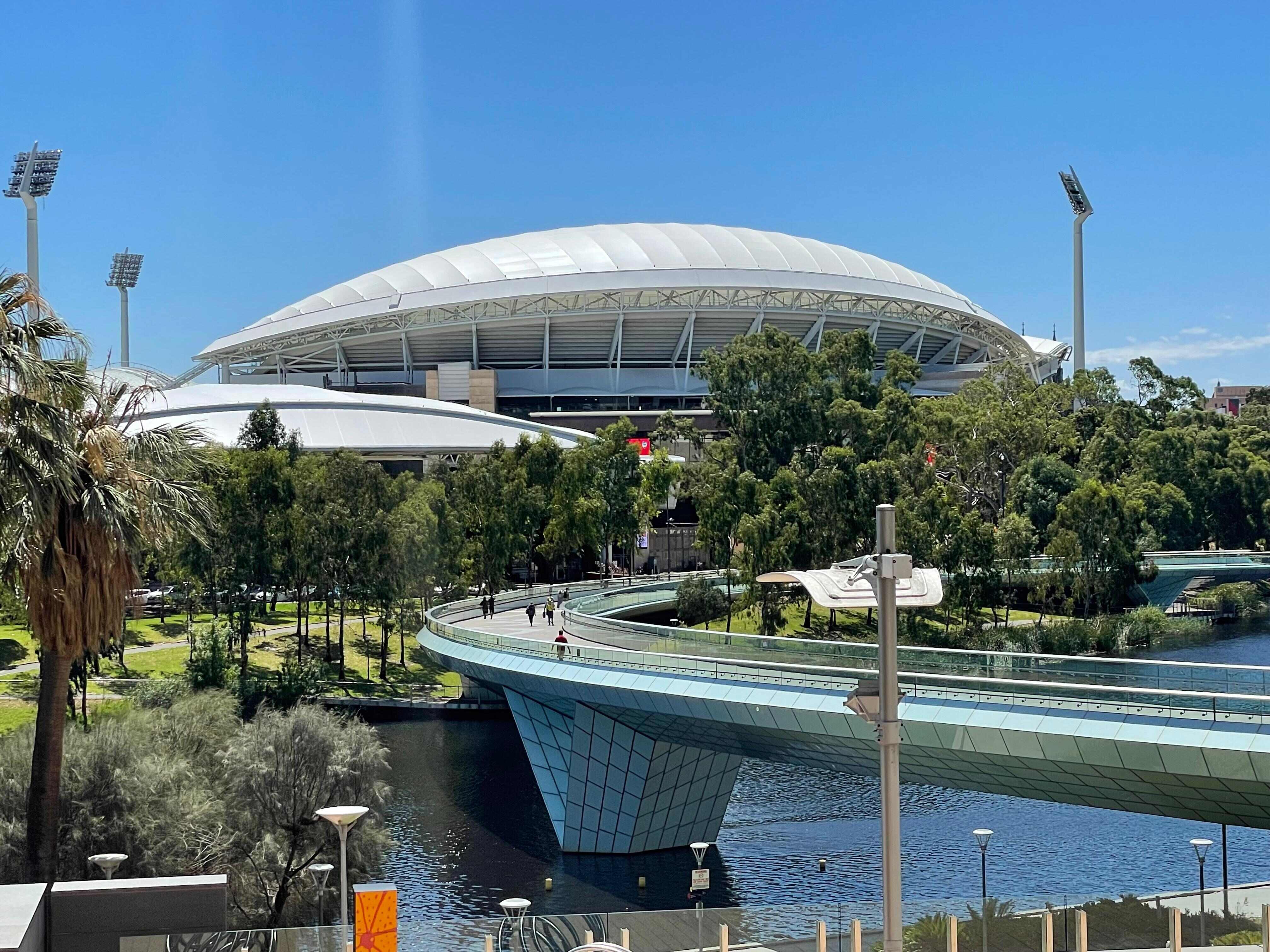

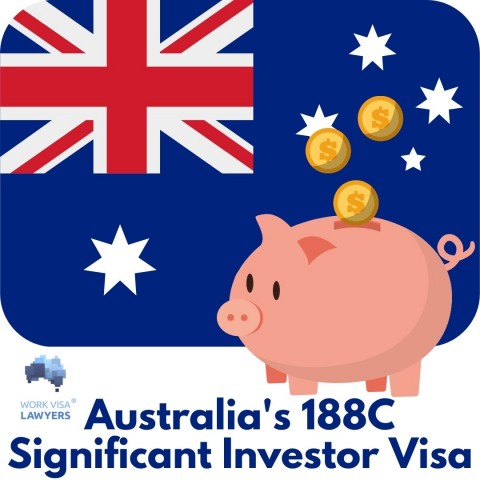









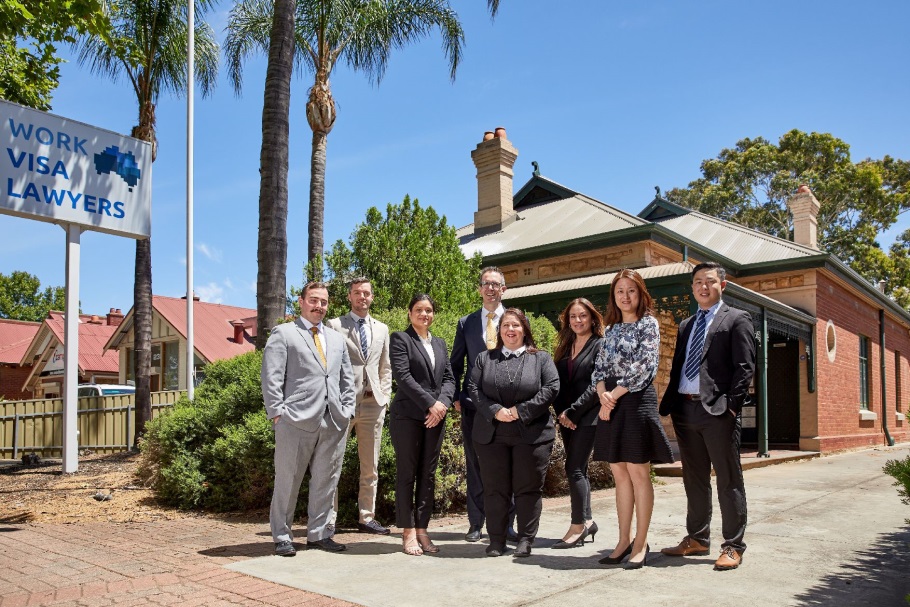

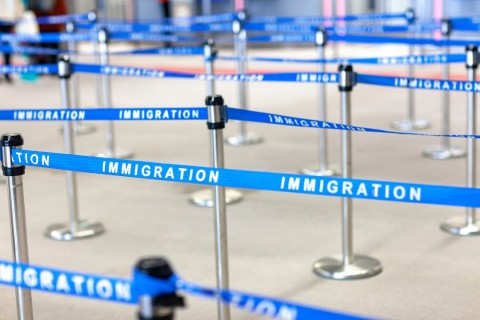



 Chris Johnston, Principal Lawyer
Chris Johnston, Principal Lawyer Trang Vu, Lawyer
Trang Vu, Lawyer